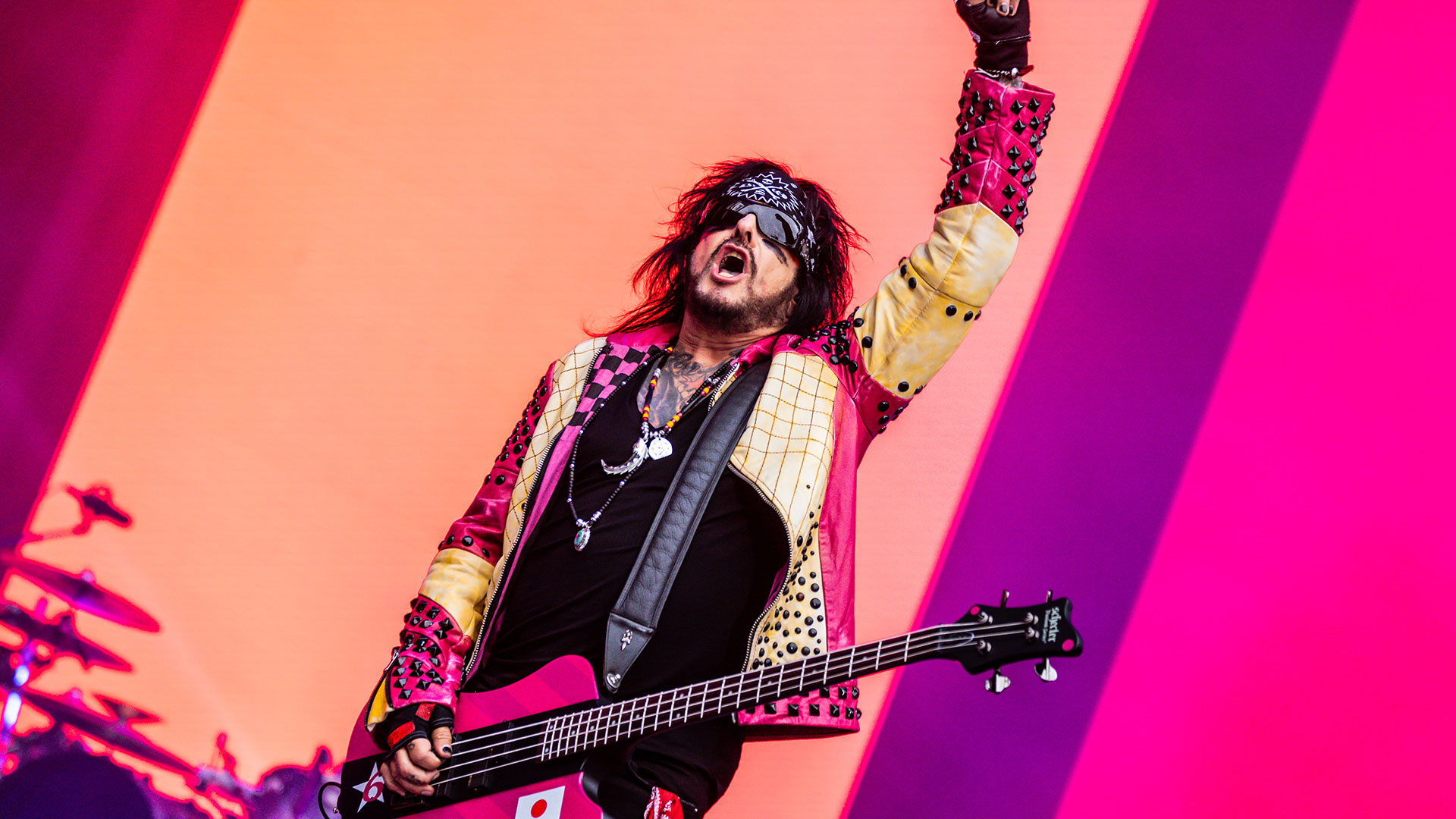
As a member and main offstage mouthpiece of one of the most notorious bands ever, not much of Nikki Sixx’s life goes unnoticed. As a bassist he’s the target of many shots: some say he’s not performing live on stage; others claim that, although he wrote many of Mötley Crüe’s biggest hits, he didn’t play on them.
But he doesn’t care – as he tells Bass Player: “Very seldom do I step out of the box. I don’t feel that’s what the band needs. You get to a place where you do something for a really long time; you're in fashion, you’re out of fashion, you’re in fashion.
“I’m in the same band for – in January – 44 years. That’s something that’s not falling on deaf ears. We’re still here and we’re still creative. We’re able to tour, and not like in the old days where you’d break the spirit of the human beings. We get to play some badass shows, reinvent the band here or there, and really enjoy this time.”
Behind Sixx is partner in rhythm Tommy Lee, while out front is longtime vocalist Vince Neil. But like the bassist touches on when he speaks of reinvention, he no longer sees the well-worn Strat of Mick Mars across the stage, but the ghost-white Tele of John 5.
His 2023 induction into Crüe was rocky, coming with waves of rumors involving Mars’ health, spats regarding touring and a nasty ongoing lawsuit. No doubt losing a riffmeister like Mars was painful; but Sixx states 5 has held his own.
“His precision on stage is so comforting to me,” the bassist says. “I know John has got it on lock no matter what. That feels great. I love being in a bad with him. He’s a great guy – we’re very fortunate.”
As for the situation with Mars, Sixx says, “Listen, we were forced. Guy’s gotta choose: You want to break up? Do you want to fuck over Live Nation? You want to screw Def Leppard? All those tickets, all that planning that we’d done, because one of your band members is too ill to perform live?”
He admits: “We really had to think about it, bro. Like, do you think we wanted to take the grief we took, and end up in a lawsuit? But what were we supposed to do – go home and fucking mow the lawn? It’s like your fucking football team; if one of your guys can’t play anymore, they bring in another guy.”
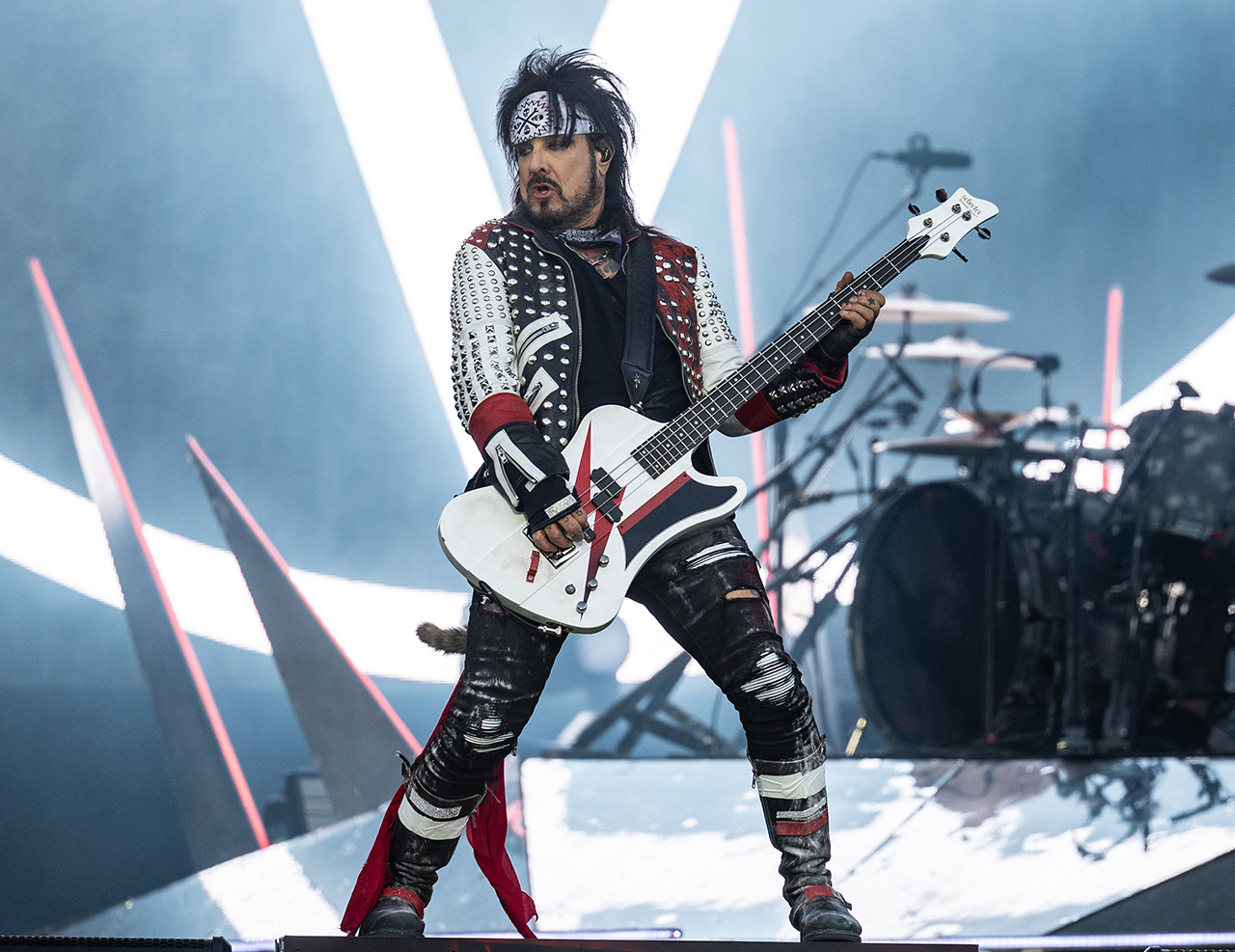
Mötley Crüe just dropped the Cancelled EP. What's the story there?
“I’m really enjoying this era of the band. In the case of the song Cancelled, I read an article on cancel culture, and I wrote these lyrics in the style and tempo of Shout at the Devil. It’s very tempo- and groove-oriented.
“We were in South America; I read the lyrics to Tommy and he goes, ‘We should get a beat to that.’ We started working in the dressing room – next thing you know, we're like, ‘Hey, let’s go cut it.’ We also worked on Dogs of War, sent it to Bob Rock, and he goes, ‘I want to do this.’”
I’ve been writing with John for 15 years… banged out a song called Lies of the Beautiful People – a Number 1 song. We just spent a lot of time together
Was there thought of a full album, or was an EP always the goal?
“It was a great example of us writing a bunch of songs, but we had no real destination. I told Scott Borchetta at Big Machine, ‘We’ve got these songs we’re working on with Bob Rock.’ He goes, ‘Let’s drop an EP, since you guys aren’t really into doing full-length records at this time.’”
Are more songs in the works?
“We got back into the art process. We got the buzz of working on a record without going into the studio and demoing and writing 20-something songs that you boil down to nine or 10. What we're enjoying doing is feeling our creativity and letting it go as it comes.
“I’m working on a song right now. I just showed the guys and they’re like, ‘That’s really cool.’ We wrote this funny song the other day backstage, and we’re like, ‘Let’s record that.’’ It’s like an old-school country, punk song, and we’ve got a couple of big riffs floating around. At some point, maybe we’ll go and demo it. Maybe it’ll end up on another EP. We’re really enjoying the creativity.”
What’s it like working with John compared to the established template with Mick?
“I’ve been writing music with John for 15 years. One of the first songs I wrote and he played guitar on was The Monster is Loose by Meat Loaf, with Desmond Child producing. Even though John wasn’t a songwriter on that, he played guitar, and we got to know each other.
“I was working on some Sixx: A.M. songs after The Heroin Diaries came out. I had John come out to my little studio. We sat around with a couple of cheap amps and banged out a song called Lies of the Beautiful People – a Number 1 song for that band.
“Then I brought him in on some other songwriting. I was like, ‘We’re gonna release a movie called The Dirt – we should probably have a song called The Dirt.’ We wrote a bunch of songs and he was in the studio for that, and he played some guitar on those songs from the movie. We just spent a lot of time together.”
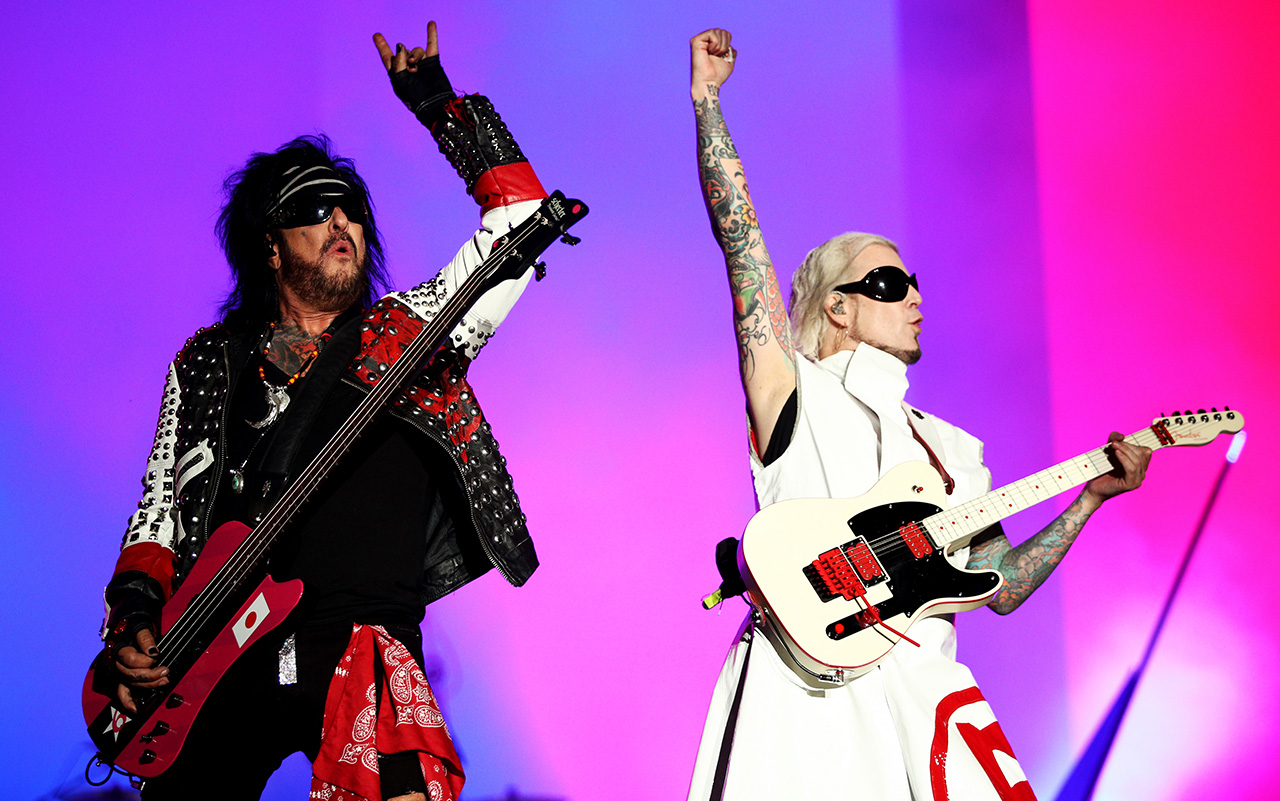
“I’m a person who has a pretty clear vision, at least starting out – in a band, sometimes it gets diluted or added to, just by team effort. You could be the greatest quarterback in the world, but if you don’t have a good team, you’re going to get fucking sacked every time.
“What I love about John is he’s really good at adapting to the room. On the song Cancelled, we were working on some cool riffs, and he would bring in these ideas that went on top.”
Smoke on the Water came on… She goes, ‘That’s you!’ I go, ‘Always has been, always will be’
He’s been vocal about being a fan of the band. That must help too.
“I wasn’t aware he was a big fan for all the years we knew each other. I knew he liked the band, but I didn’t know he knew our catalog so deeply. He’ll mention songs to me – like the lyrics from Louder than Hell – and say, ‘Man, those are genius.’ I’m like, ‘That’s 1985! That’s amazing!’
“What I really love about John is he’s able to keep it in the world we’re working on. Yet at the same time, if you’re like, ‘Let’s go off the rails right here,’ we can do that.”
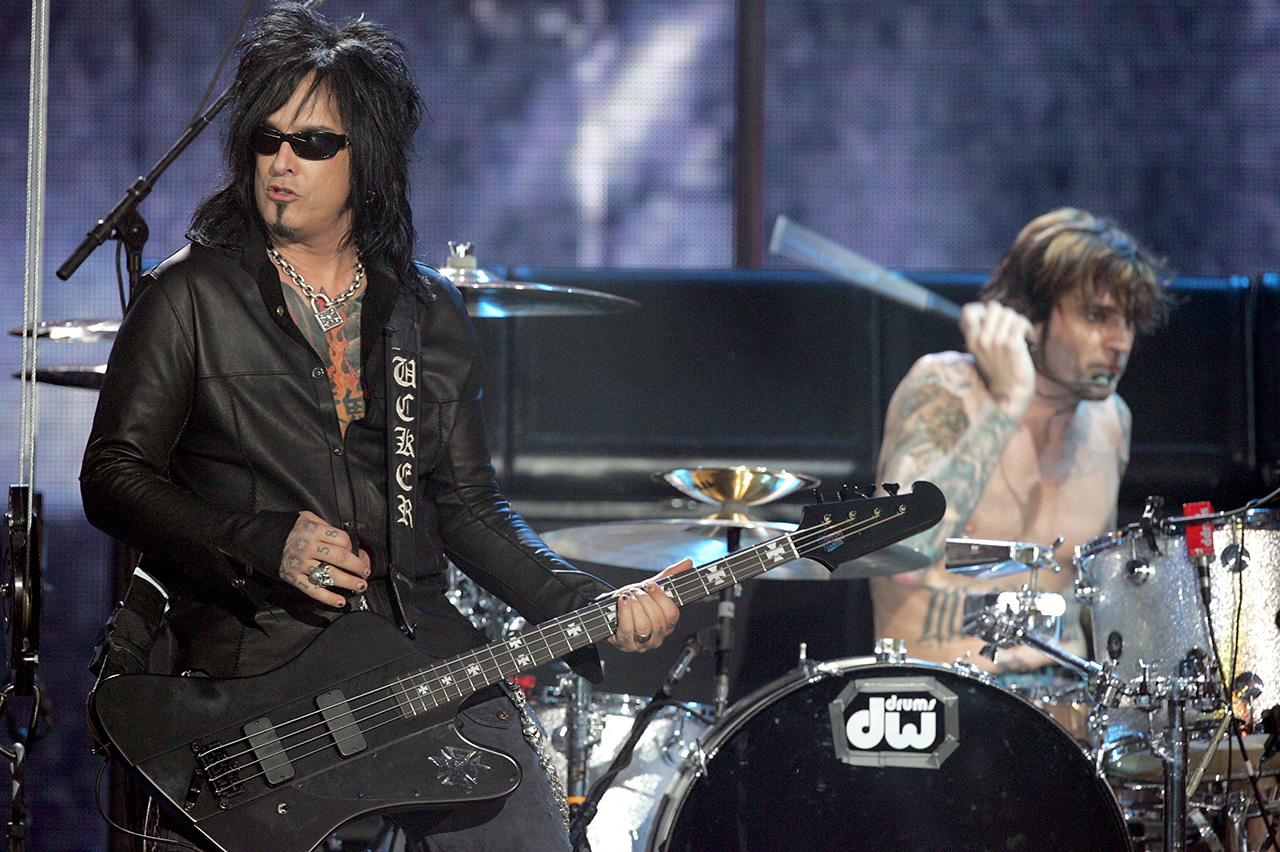
What keeps you inspired in terms of playing bass?
“I have an interesting approach and outlook on bass for this band. I was driving with my wife and Smoke on the Water came on; and I go, ‘Just wait for it.’ All of a sudden you hear it. She looked at me and goes, ‘That’s you!’ I go, ‘Always has been, always will be.’
“Then I put on an AC/DC song. She’s not a musician, right? But she goes, ‘I understand!’ So that’s where I want to be. I want to be on Girls, Girls, Girls; I want to be on Primal Scream. I want to be doing that kind of stuff.
“I just love the pocket, man. We were listening to some music last night and I go, ‘Listen to this bass.’ My wife goes, ‘That bass player is driving the song.’ It was a song by Seal – and it was so different from my approach – but it’s the right approach there. I’m like, ‘What if I had that approach in my band? What would that sound like?’
“When I first learned to write music I had a three-string nylon guitar from my stepfather. I started writing notes – I’m still the weird kid with the notepad, except now it's on my iPhone – and I would always be documenting everything, like fights in the schoolyard.
“I had three strings; I would read my lyrics, play a root note, and try to express my life as a teenager through music. When he gave me that guitar, he actually carved my future out. If I’d had a traditional guitar – which I love – I’d have had a whole different outlook on the bass.
“Then I started fucking around in bands, and I couldn’t really play in those. I tried to be in top 40 bands, but it was boring because I’d say. ‘I’ve got original songs.’ They’d say, ‘No one does originals, dude. There’s no money in it.’ I just stuck to this thing that’s in the pocket and makes room for the melody and the importance of the words.”
With the expanded sound since John joined, are you searching for new sounds on bass?
“I’m constantly searching for the more garage side of it, for me. Like, if I wasn’t 500 years old, I would probably start a garage band! But I’m not doing that at this point.”
I could hit an E, put it in the stand, go get a cup of coffee and it’s still ringing. It allows for the specific way I play bass
Are there plans for any new signature gear?
“Going back to the ‘80s, when I was with Spector, we did a non-reverse Thunderbird shape. I played that around the time of Girls, Girls, Girls. When I was doing a bass solo on Generation Swine they gave me a bunch of Epiphones, which ended up getting destroyed at the end of the bass solo. That’s how I ended up with Epiphone and Gibson at the time.
“But they were also the reverse-style. Every time I get that, it sits on my lap or hangs off my strap, and I’m just like, ‘This feels like home.’ So, I’ve been doing these reverse Thunderbird body shapes with Schecter, and there's something about the way it balances. We all know a ‘Bird doesn't balance the best, but my main instrument on stage is some version of that Thunderbird-ish thing.”
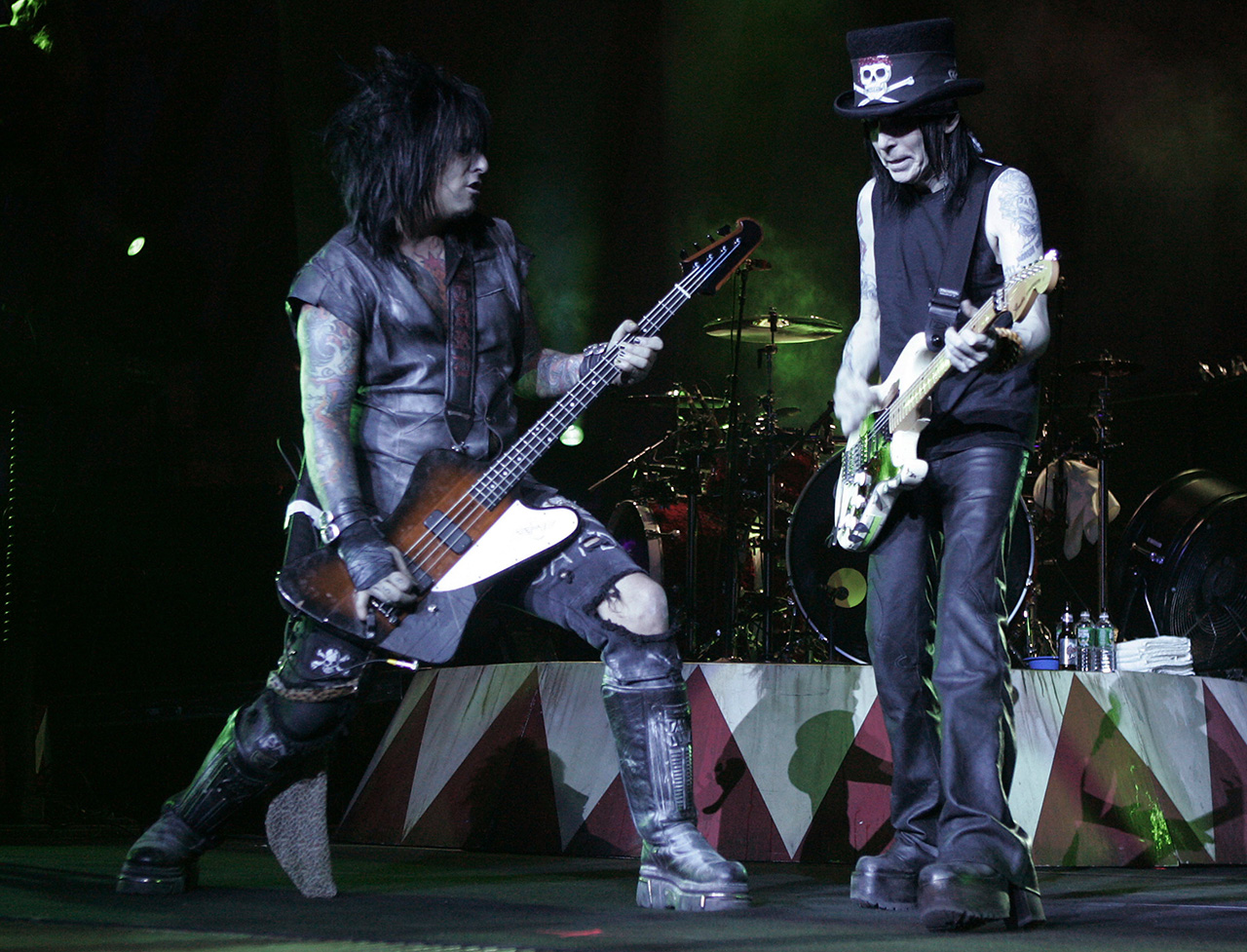
Thunderbirds are notorious for feeling a bit unbalanced.
“I had this talk with my tech, and we believe that Gibson came out with the Thunderbird in the early ‘60s. Then they reversed the body, so the horns are at the bottom, which is the Thunderbird we’ve all seen a million times.
“Some people say the bass I’ve been playing my whole career is actually the non-reverse and not the reverse. To be honest with you, I have no fucking idea! There’s a bunch of photos of me out there playing the new body shape. It makes it easier for me to move around. It holds to my body nicer.”
How does your signature Schecter compare to other basses you’ve used?
“Those Schecters are something else, man. I’ll hit a note at the end of a song, and usually, on bass, you can hammer your E, wait for your drummer to come around, finish the song and the bass dissipates. The guitars will sustain and the drummer is filling up space.
“But this fucking bass, man – I could hit an E, put it in the stand, go get a cup of coffee, come back, and it’s still ringing. It allows for the specific way I play bass to really have that openness and big, round, almost piano-like sound.”
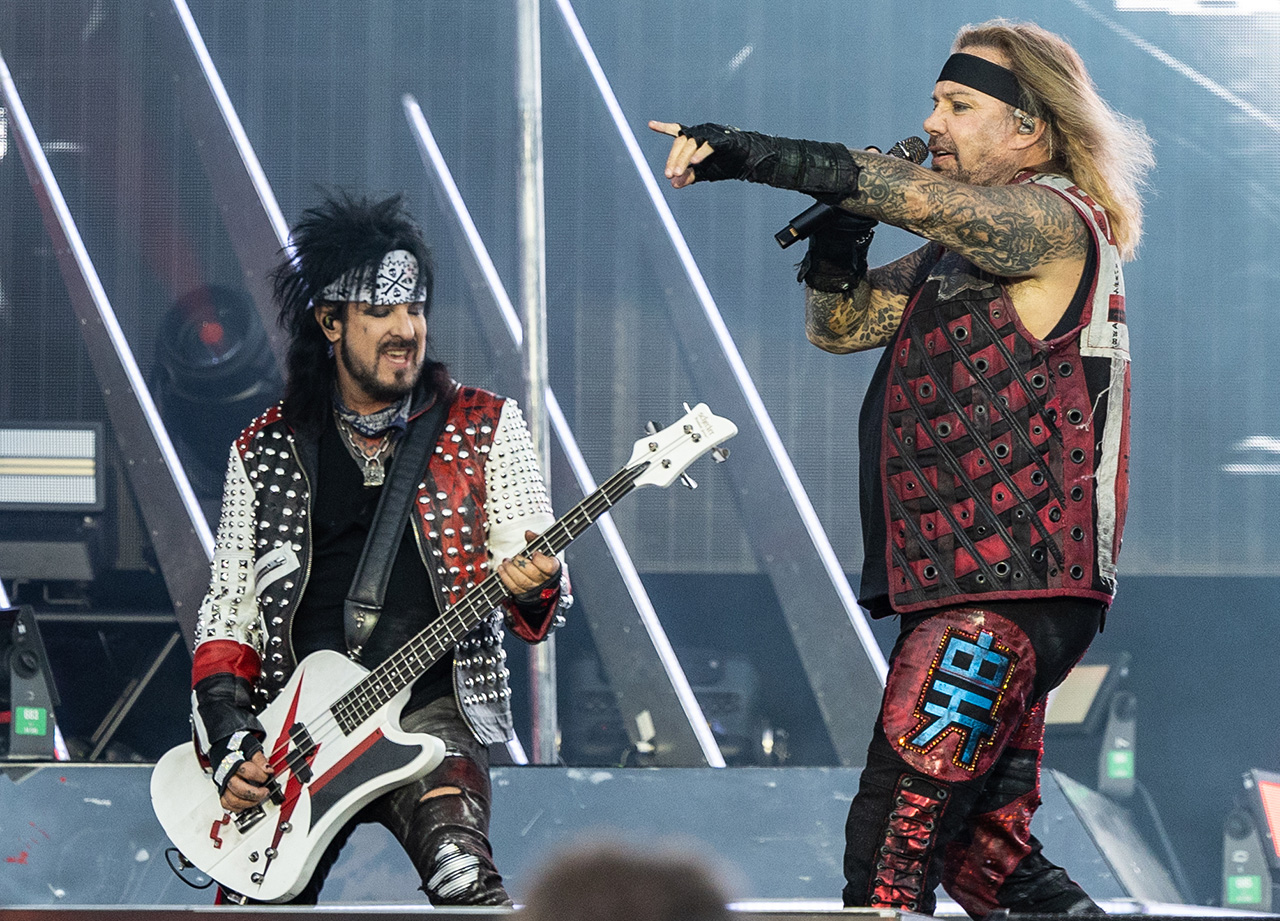
Mötley Crüe is celebrating Dr. Feelgood’s 35th anniversary. What are you most proud of as far as your bass contributions go?
“I’ve never been one that talks about my bass playing because I’m a band member. I’m a team guy. Everything’s a football analogy with me; I'm not the running back or the quarterback – I’m a fucking lineman. People don’t talk about the lineman a lot unless he goes out and crushes people. I probably should a little bit more!
“But I love the Dr. Feelgood album. It was the first time I was sober. I really am proud of my bass playing; I’m proud of the albums we’ve made; I’m proud of the tones. I’m proud of the fact that I wrote those songs, and I was able to go, ‘What does this song need?’ Not, ‘What do I need?’ but ‘What does the song need?’”
What’s the key to the Mötley Crüe bass sound?
I don’t know what people can or can’t feel out front, but I’m so fortunate with Tommy to do what I do
“The important part is the dirt and simplicity that gives the opportunity for the song to stand out. Tommy’s such an amazing drummer; to have that pocket with him is so fucking awesome.
“The other night we were playing Same Ol’ Situation, and I straightened out the bassline a bit because the chorus is pretty much driving along. It makes those poppy vocals sound better. I looked back at Tommy and I’m like, ‘This is fucking spiritual, man!’
“You can feel it in your gut and your heart. I don’t know what people can or can’t feel out front, but I’m always so fortunate with Tommy to be able to do what I do.”
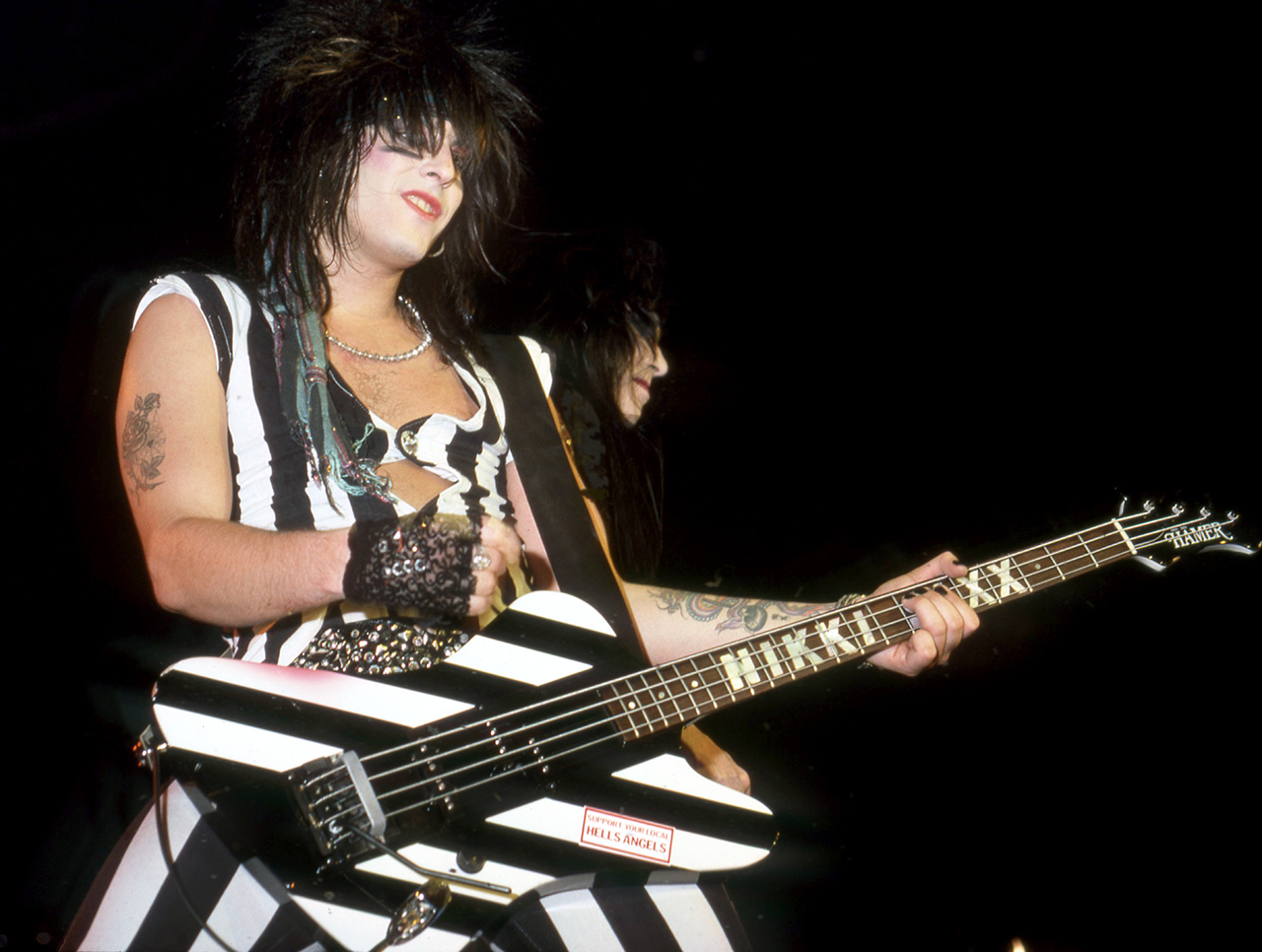
Mötley Crüe will soon stage on a Las Vegas residency. How do you prepare for that?
“We’re going to be playing at the MGM, which is a really nice venue. We’re working on making it more intimate for us. We got to go out multiple times, do the Stadium Tour with Def Leppard, and we dug into the songs we wanted to play.
“We did what every band does: rehearsed them and worked on the lights, and so the show was powerful and consistent. We've been running that show, changed the order and added songs here and there.
“But we’re like, ‘Okay – we don’t want to go to Vegas and be doing the same thing we’ve been doing.’ We went back and looked at some songs we haven’t played in a long time. And we’re maybe discussing some reimagined versions of a song or two.”
- The 35th anniversary edition of Dr. Feelgood is available for pre-order. Las Vegas packages for the 2025 residency shows are also on sale.







